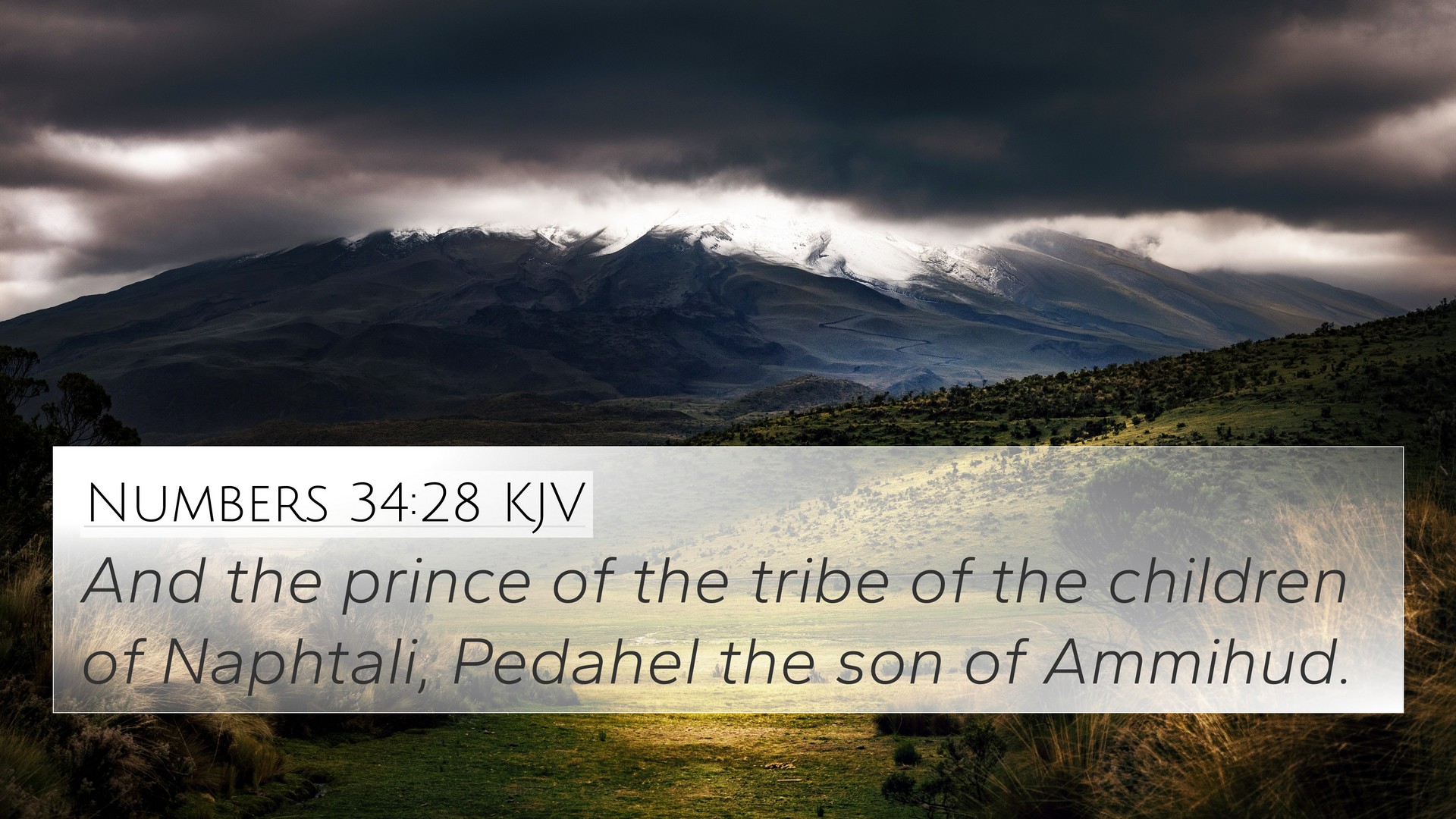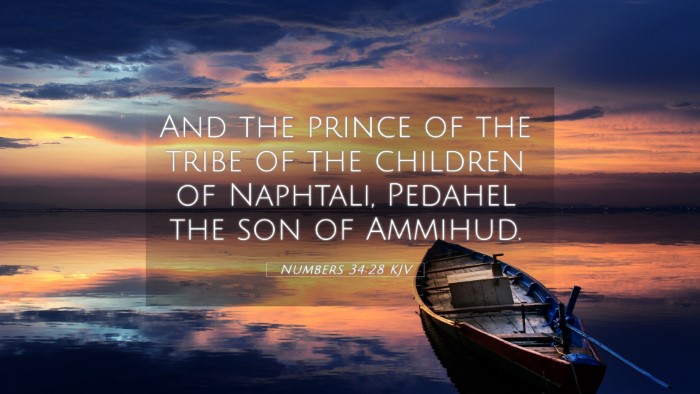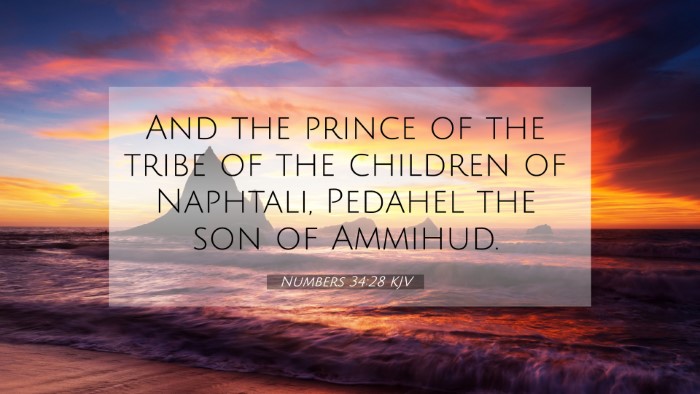Understanding Numbers 34:28
Numbers 34:28 states: "And of the tribe of Issachar, a ruler, Paltiel the son of Azzan."
This verse is part of a larger passage that details the leaders designated to oversee the distribution of the Promised Land among the tribes of Israel. In this summary, we will explore its meaning and implications through insights gathered from esteemed public domain commentaries.
Context and Significance
The context of Numbers 34 is crucial for understanding the significance of this verse. The Israelites are on the verge of entering the Promised Land, and God commands the appointment of leaders from each tribe to allocate the land. This demonstrates divine order and the importance of leadership in the community.
Commentary Insights
- Matthew Henry: Henry emphasizes the divine authority behind the selection of leaders, suggesting that God’s guidance ensures the right individuals are chosen for critical tasks. He points out that each leader's tenure is a reflection of God’s order and forethought.
- Albert Barnes: Barnes notes that the appointed rulers represent both the authority of God and the structure of Israelite society. He examines the unique responsibilities placed upon these leaders and how they are held accountable for their stewardship over the land.
- Adam Clarke: Clarke focuses on the individual character of Paltiel, the ruler from the tribe of Issachar. He describes him as someone who would honor God through his leadership, underscoring the virtues necessary for guiding the people in matters of land distribution.
Bible Verse Cross-References
To enhance understanding and to illustrate the connectivity within Scripture, here are several related verses that highlight the themes of leadership, responsibility, and land allocation:
- Deuteronomy 1:13: "Take you wise men, and understanding, and known among your tribes, and I will make them rulers over you."
- Joshua 1:11: "Pass through the host, and command the people, saying, Prepare you victuals; for within three days ye shall pass over this Jordan."
- Numbers 34:20: "And of the tribe of Simeon, Shemuel the son of Ammihud."
- Joshua 14:1: "And these are the countries which the children of Israel inherited in the land of Canaan, which Eleazar the priest, and Joshua the son of Nun, and the heads of the fathers of the tribes of the children of Israel, distributed to them."
- 1 Chronicles 5:24: "And these were the heads of the house of their fathers..."
- Joshua 22:2: "And said unto them, Ye have kept all that Moses the servant of the LORD commanded you..."
- Numbers 34:27: "And of the tribe of Ephraim, a ruler, the son of Nethaneel."
Thematic Bible Verse Connections
Across the entire narrative, the thematic elements of leadership, communal responsibility, and divine direction emerge prominently.
- Divine Selection: The selection of leaders speaks to God’s sovereignty over His people and their affairs.
- Community and Responsibility: Each leader bears responsibility not only for their tribe but for the well-being of the Israelite community as a whole.
- Faithfulness to God: The integrity of the leaders is paramount, reflecting their faithfulness to God’s covenant.
How to Use Bible Cross-References
For those studying the Bible, utilizing cross-references enhances comprehension and connects thematic threads throughout Scripture. Tools like a Bible concordance or Bible cross-reference guide can aid users in discovering these relationships.
Methods for Bible Cross-Referencing:
- Identifying Keywords: Focus on keywords or phrases in a verse to find related passages.
- Thematic Studies: Analyze a specific theme or doctrine and gather all pertinent verses.
- Contextual Readings: Read surrounding verses to gain insights into the message and cross-references.
- Comparative Analysis: Compare similar passages across different books of the Bible.
Conclusion
Numbers 34:28 serves as a vivid reminder of God's ordained structure for leadership within Israel, encapsulating themes of divine direction and communal responsibility. As we explore Scripture through tools for Bible cross-referencing, we can appreciate the depth and interconnectedness of God’s Word, enriching our understanding of His plans and purposes.
By studying the connections between Bible verses, such as those found in this passage, we engage in a profound inter-Biblical dialogue that enhances both individual faith and communal understanding.


